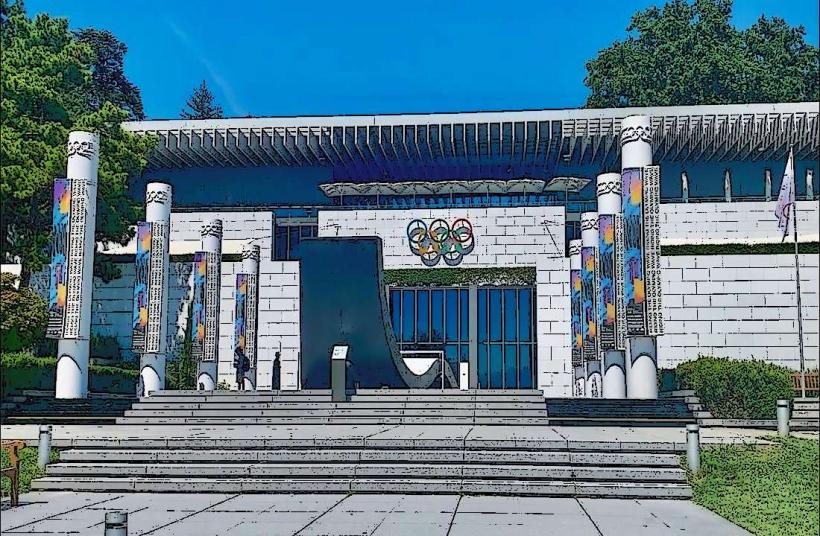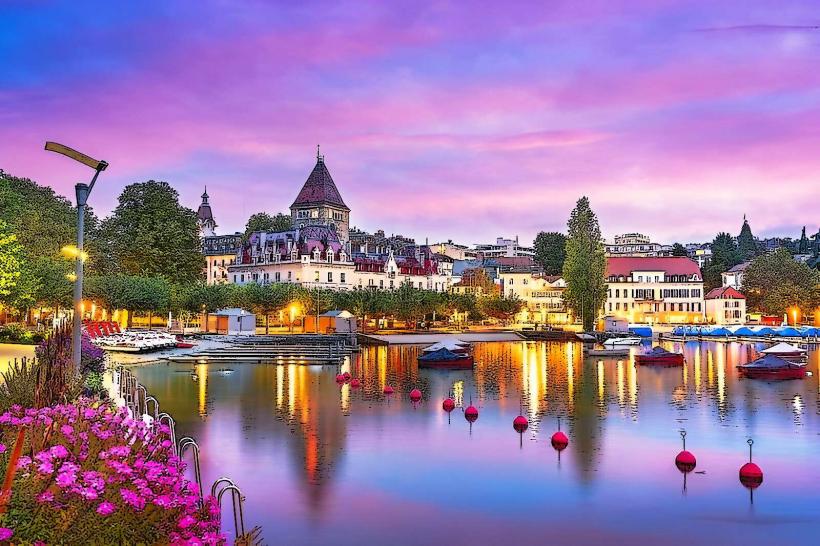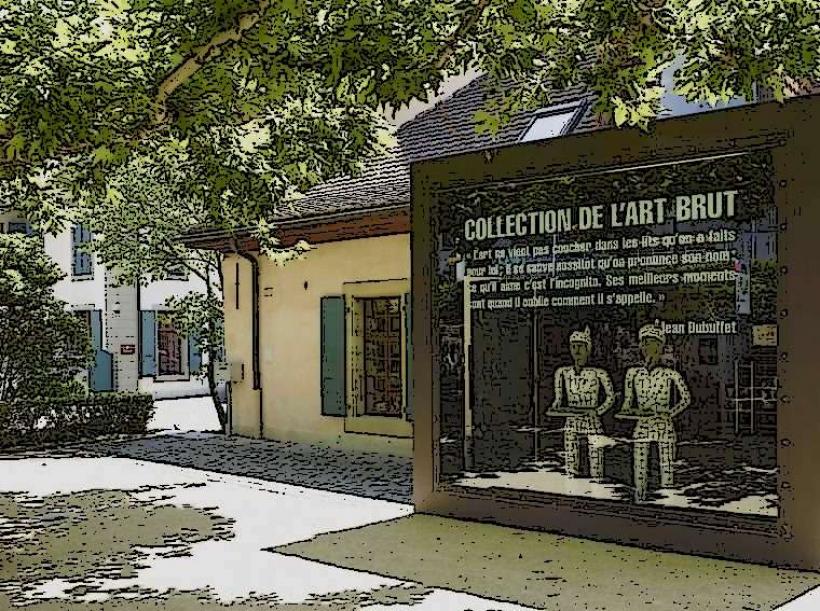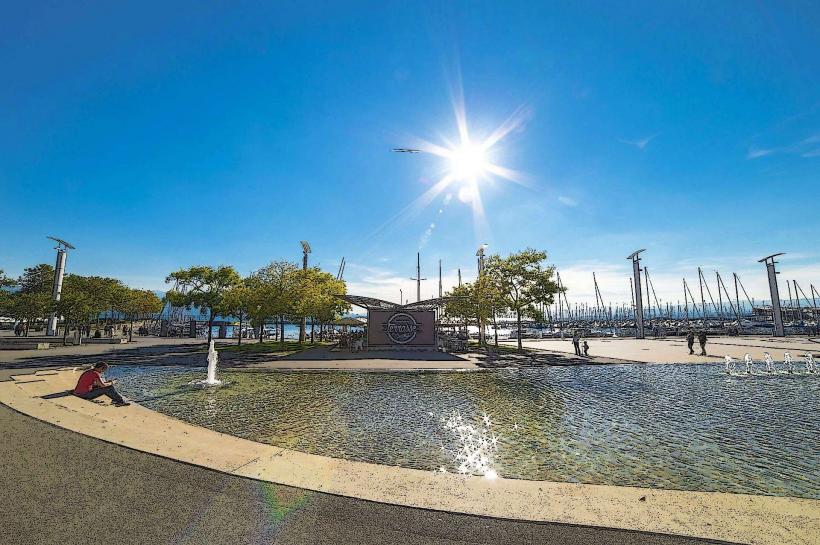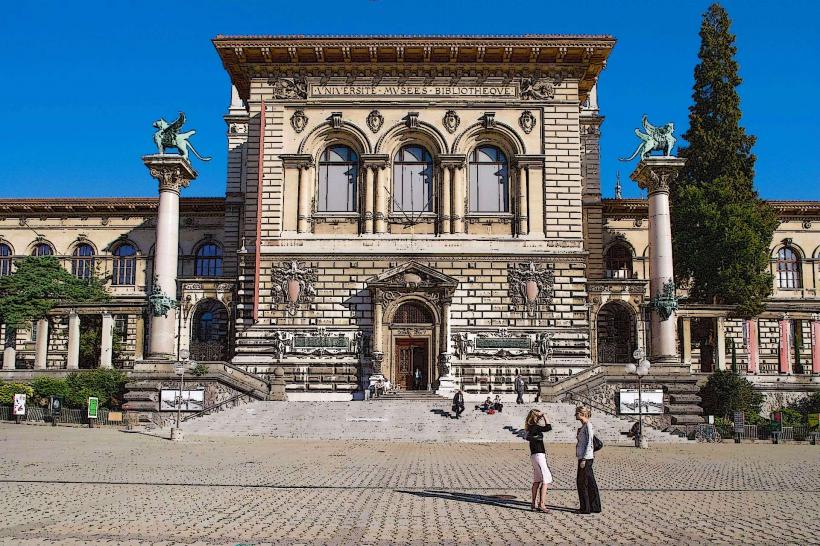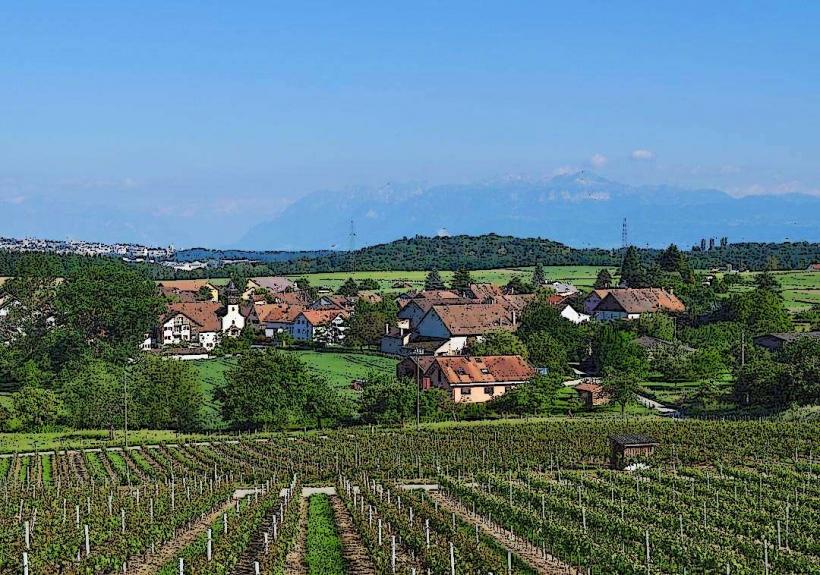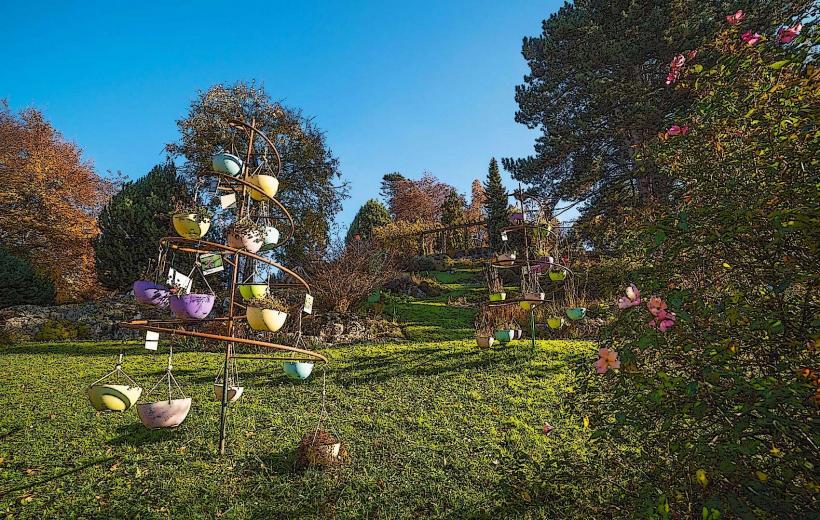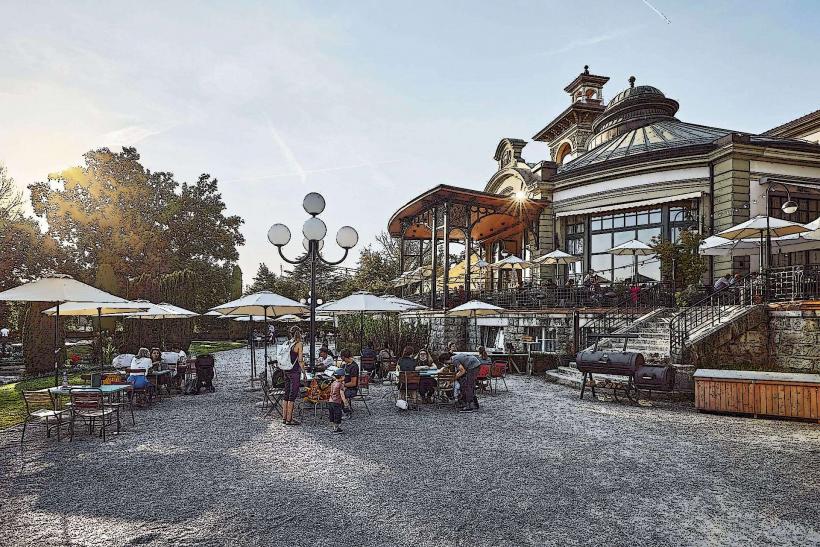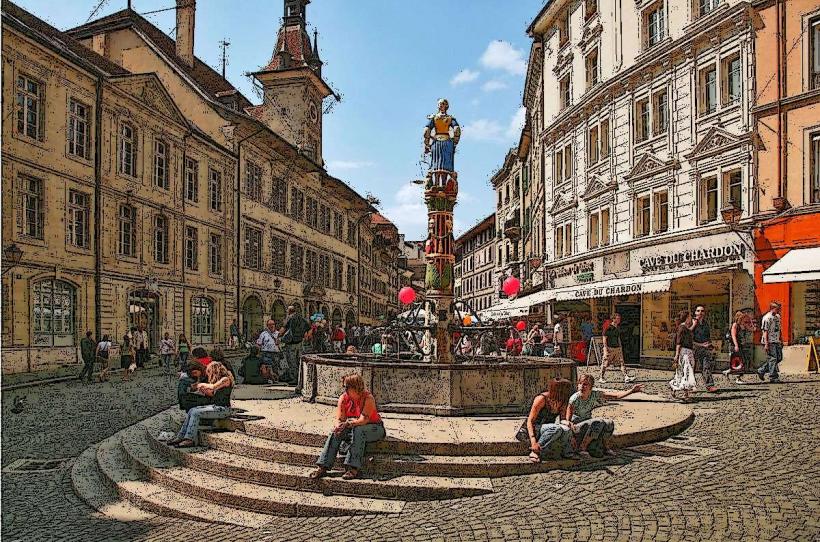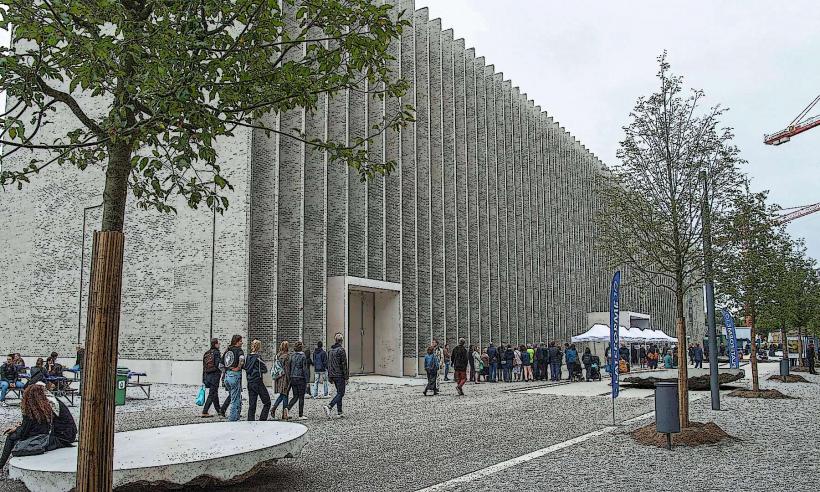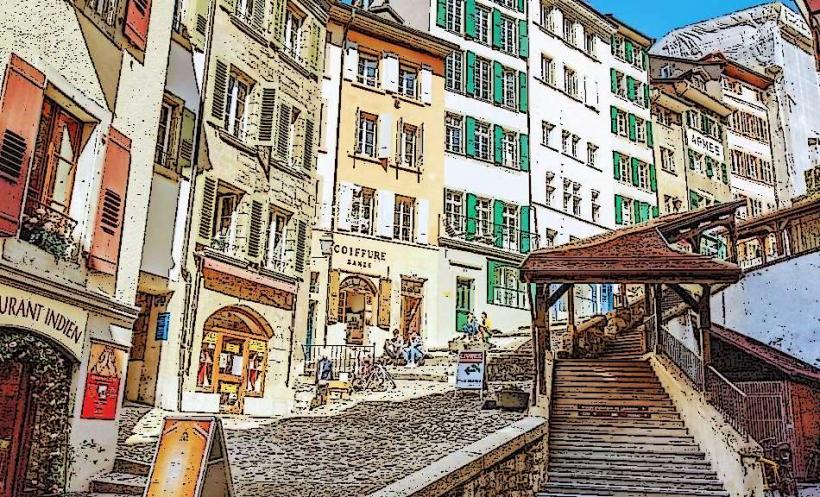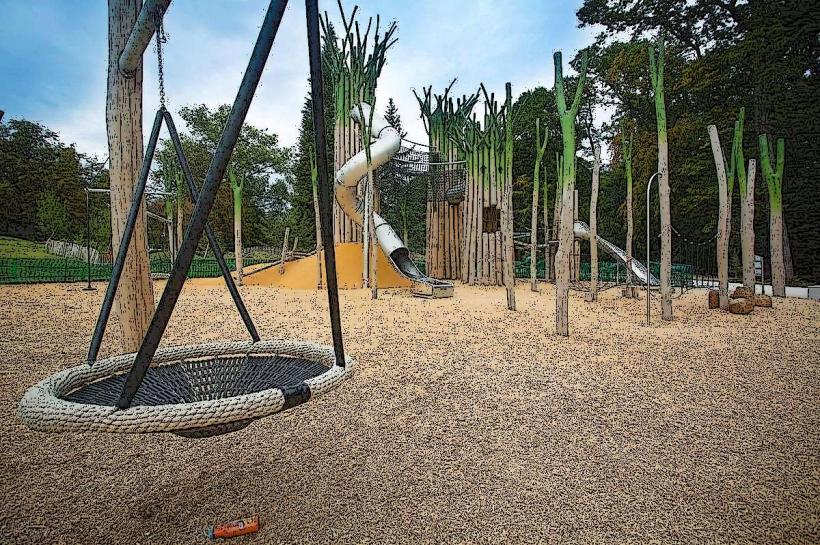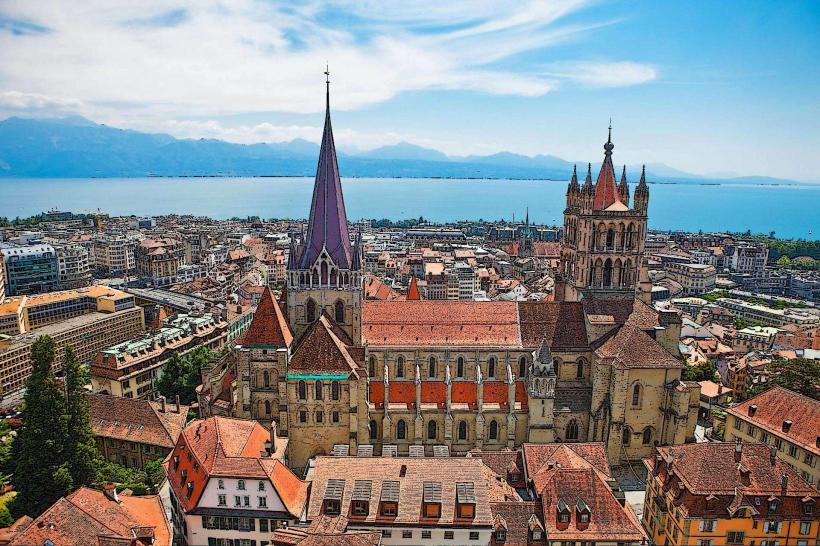Information
Landmark: Château de ChillonCity: Lausanne
Country: Switzerland
Continent: Europe
Château de Chillon, Lausanne, Switzerland, Europe
Chillon Castle (Château de Chillon) is an island castle located on Lake Geneva (Lac Léman) in the municipality of Veytaux, near Montreux and approximately 25km east of Lausanne. It is Switzerland's most visited historic monument.
Visual Characteristics
The castle is built on an oval-shaped limestone rock protruding into the lake. Its architecture is characterized by a dual personality: the side facing the land is heavily fortified with defensive walls and towers, while the side facing the lake is more residential, featuring large windows and scenic views. The complex consists of 25 buildings and three courtyards protected by two circular enclosure walls.
Location & Access Logistics
Address: Avenue de Chillon 21, 1820 Veytaux.
Public Transport: * Train: S-Bahn line S2 or S3 to the "Veytaux-Chillon" station, followed by a 300m walk.
Bus: Line 201 from Montreux or Vevey to the "Chillon" stop.
Boat: Seasonal CGN ferries dock directly at the "Chillon" pier.
Vehicle: Located on the main lakeside road between Montreux and Villeneuve. A large public parking lot is located across the road from the castle.
Historical & Ecological Origin
The site has been occupied since the Bronze Age, but the current structure was primarily developed by the House of Savoy during the 13th and 14th centuries. It served as a strategic toll station on the road to the Great St. Bernard Pass. The castle is geologically situated at the foot of the Prealps, where the mountains meet the deepest part of Lake Geneva.
Key Highlights & Activities
The Dungeons: Gothic underground vaults carved into the rock, famously holding François Bonivard from 1530 to 1536.
Great Halls: Four massive banquet halls with views of the lake and the Alps.
The Chapel: Features 14th-century murals and serves as one of the few remains of the castle’s religious history.
Weaponry & Furniture: Displays an extensive collection of medieval armor, chests, and tapestries.
Infrastructure & Amenities
Facilities: The castle features a shop and a snack bar.
Accessibility: Due to its medieval architecture (narrow stairs, cobblestones), only the first courtyard and the museum shop are fully wheelchair accessible.
Digital: A comprehensive audio guide is available in multiple languages. 5G signal is stable in the area.
Best Time to Visit
Hours: Daily 10:00 AM – 5:00 PM (extended to 6:00 PM in summer).
Strategy: Arrive early morning to avoid the high volume of tour groups.
Seasonality: Summer allows for boat access, while winter offers a more atmospheric, solitary experience of the dungeons.
Facts & Legends
The castle was immortalized by Lord Byron in his 1816 poem The Prisoner of Chillon. A verified historical detail: Byron actually carved his name into one of the pillars in the dungeon, which is still visible today.
Nearby Landmarks
Montreux Lakeside Promenade – 3.0km West
Freddie Mercury Statue (Montreux) – 2.8km West
Fort de Chillon – 0.2km East (a decommissioned secret military bunker)
Villeneuve – 1.5km South

